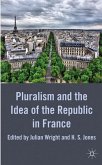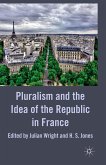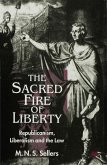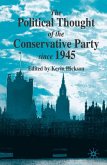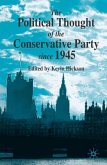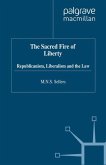The contributors of this volume seek to answer such questions as: 'How did the Germans overcome 'Germanic Ideology', or did they?' 'Why is there no libertarianism in Germany?' 'What do German conservatives wish to conserve?'. Emphasizing shared patterns of thought, the contributors trace the contours of political thought in a divided nation with a difficult past, and ion the shadow of the culture and political values of the United States.
"Today, there is no shortage of serious academic studies of German intellectual, cultural, and political life leading up to the Second World War. There has been, however, a strange silence in the anglophone world about Germany's post-war development and, consequently, there is great ignorance about the ways in which Germany has changed. This volume is an excellent introduction to the political thought and culture of post-war Germany and provides necessary background for understanding what role that important country might play in European and world politics."
- Mark Lilla, Committee on Social Thought, University of Chicago
"The editor has assembled a fine collection of essays that succeeds impressively on two levels: It explores the re-emergence of engaged political discourse in a country recovering from the systematic abuse of political thinking, and it advances our understanding of modern ideologies as complex, subtle and flexible fields of meaning."
- Michael Freeden, Mansfield College, Oxford University
"Jan-Werner Mueller is in the top flight of a small number of scholars who have brought to bear the perspectives of the 'new intellectual history' upon the analysis of postwar Germany. German Ideologies since 1945 assembles a distinguished group of historians who are all firmly committed to putting intellectual discourses and debates into the larger socio-political landscape of the Federal Republic since the defeat of Nazism. Whileleftist political thought, Critical Theory, and the impact of the radical 1960s and 1970s are illuminatingly covered by internationally known authors, the contributions on the evolution of post-Nazi conservatism fill a particularly large gap in our knowledge of technocratic and New Right ideologies and make this a truly outstanding collection both in terms of its comprehensiveness and its intellectual cohesion."
- V. R. Berghahn, Seth Low Professor of History, Columbia University
- Mark Lilla, Committee on Social Thought, University of Chicago
"The editor has assembled a fine collection of essays that succeeds impressively on two levels: It explores the re-emergence of engaged political discourse in a country recovering from the systematic abuse of political thinking, and it advances our understanding of modern ideologies as complex, subtle and flexible fields of meaning."
- Michael Freeden, Mansfield College, Oxford University
"Jan-Werner Mueller is in the top flight of a small number of scholars who have brought to bear the perspectives of the 'new intellectual history' upon the analysis of postwar Germany. German Ideologies since 1945 assembles a distinguished group of historians who are all firmly committed to putting intellectual discourses and debates into the larger socio-political landscape of the Federal Republic since the defeat of Nazism. Whileleftist political thought, Critical Theory, and the impact of the radical 1960s and 1970s are illuminatingly covered by internationally known authors, the contributions on the evolution of post-Nazi conservatism fill a particularly large gap in our knowledge of technocratic and New Right ideologies and make this a truly outstanding collection both in terms of its comprehensiveness and its intellectual cohesion."
- V. R. Berghahn, Seth Low Professor of History, Columbia University



